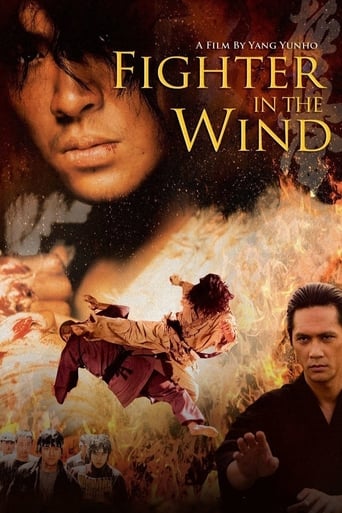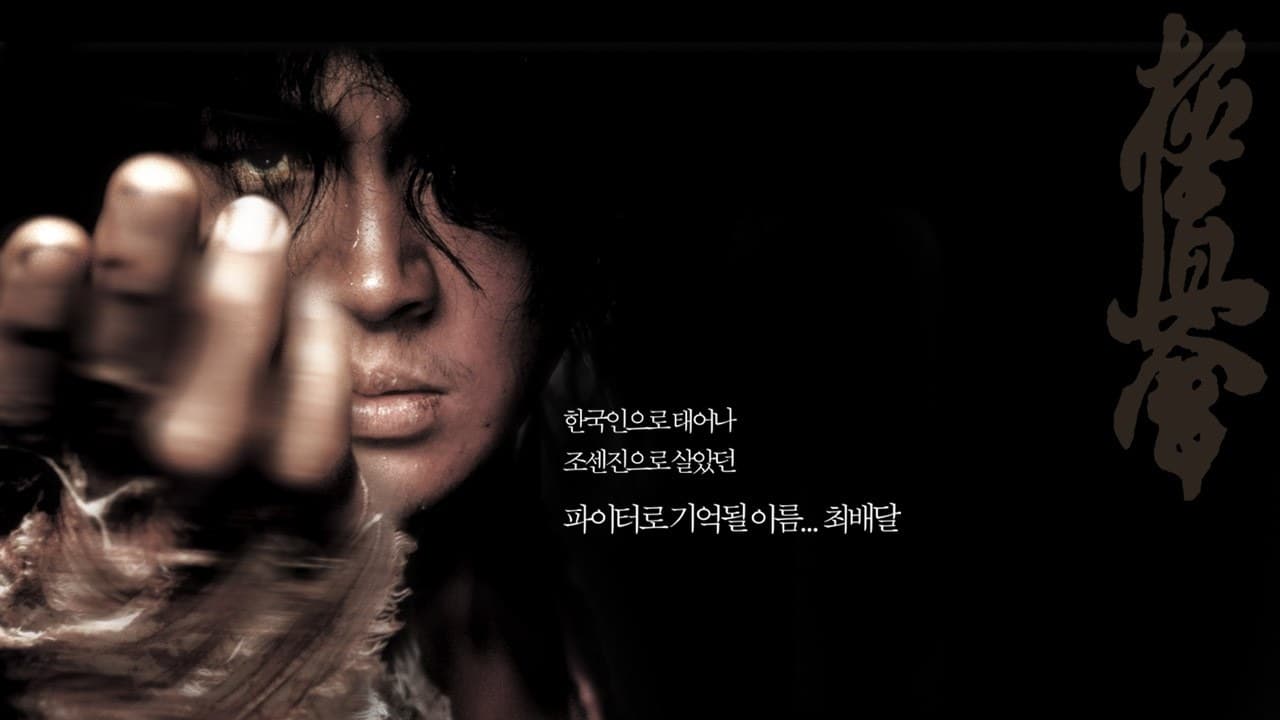the_greek-22645
Fighter in the wind... Haven't i watched it like a 100 times. Friends even make fun of my passion about this movie. I love it not only for the writing or martial arts scenes, but mostly for letting the main hero progress and grow as a person through the film and letting me know him better all the time during his changes. The unskilled, afraid young Korean in the racist Japan community, having to take on bullies, underworld and surviving. The guy who watered himself out of terror, became the best fighter in the world. This film gives him space and time to evolve and make us know him better over time. This is how you get attention from the audience Hollywood!! Many lessons can be taught to western action movie makers, even to this day 11 years later. The human aspect of the hero taking beaten, letting us see his wounds, care for him... Seeing his knuckles and body bloody and beaten. Showing us his suffering. Even more showing us how he fought his own demons and set his mind to victory, how he decided to take off to the mountains and train, how much he wanted to become better and stronger. Not only as a fighter, but as a person as well. This is what makes him exemplar to us watching. I know that this is not Oyama's 100% real story, but i do not care. Character build up, minimalistic editing and great fight scenes made me fall in love with this movie.I will never forget his notion about fighting and perhaps dying. His deepest fears. Great movie, must see!
refresh daemon
Fighter in the Wind is a Corea-produced martial arts biopic about Masutatsu Oyama (born Choi Baedal), the ethnically Corean founder of Kyokushin karate. I actually went into this film bracing for the worst kind of nationalism that I often expect from Corean film when dealing with Japan, but was pleasantly surprised at how subdued it was. In addition to some limited, but kinetic fight sequences, Fighter in the Wind ends up being a mostly satisfying, if limited, portrait of a prominent figure of the martial arts world.The fictionalized story covers the early portion of Oyama's life in Japan. While history shows that Oyama had actually trained in two schools of karate before developing his own technique, I imagine that much of the actual of events of his life were elided for both running time as well as nationalistic purposes, in re-centering Oyama as a Corean (perhaps to appeal to the Corean movie-going populace). In addition to watching Baedal/Oyama get beat up, beat people up and become a total badass, we also watch him make friends with another ethnic Corean (the vice-ridden best friend), develop a relationship with a Japanese woman, get schooled by a Zainichi karate instructor/circus troupe guard, and spend a chunk of time brutally training in solitude in the mountains.The film follows a rather unsurprising approach that you can find in many martial arts films, following the hero's journey as he starts from a scrapping fighter, who gets beaten, learns and trains with a master and learned to use his skills for good and not selfish ambition, is forced to fight to protect someone, beats the big bad in the end. Yeah, totally formulaic since this film mostly fits the basic formula, but like many films before it, it works. You see the growth of Baedal/Oyama's character, you see his victory from rather rough beginnings and how he changes the lives of those around him. Basic biopic/hero-film stuff. But it's pretty well executed, so although it's nothing that's going to amaze you, at the same time, the character remains interesting enough to keep your attention, like any biopic. Unfortunately, most of the Japanese villains are painted with a rather broad near-mustache-twirling brush, so if you're looking for complexity in your story-telling, you won't find it here.The fight scenes, while not plentiful, are kinetic and hard hitting, especially the montage as Oyama takes on school after school of Japan's elite fighters. It's fun to watch the different martial arts interact and it's hard not to root for Oyama's practical underdog style. Photography is pretty good, adapting to the different dramatic material well, while still seeming cohesive and the film doesn't tank in terms of sonic presentation. The acting was overall good, although sometimes I felt like Yang Donggun, who played Oyama, had a rather limited character to work with, but he still seemed to embody that rather simple determination with his posture, even if I had a hard time believing that his body was one of a brutally effective fighter.I still have some issues with the probably nationalistically motivated fictionalizations to Oyama's life and the rather obvious bad-guy characterizations of the antagonists, but in terms of an engaging biopic, Fighter in the Wind actually manages to make it out okay--if you like martial arts. It's no visionary work of art, but a rather modestly put together biopic that tells the story of a man whose determination and courage led to greatness. These things work for a reason and Fighter didn't screw it up, even if it did nothing astounding. Good for martial arts fans and probably passable for everyone else. 7/10.
ken ohshima
This is a typical Korean movie with full of anti-Japan sentiment and lies. Choi Bae-dal was so-called "chinilpa" (pro-Japanese traitor), who loved Japanese martial arts and got Japanese name and nationality. He practiced Shotokan-karate and Gojyu-Ru karate, not Korean martial arts or Tekkyon.Because Koreans don't like to admit that they learned many Japanese cultures during the colonial period, they have distorted the history as if the origin of all Japanese cultures was in Korea. Korea's Taekwondo association has made similar distortion and hided the truth that karate was the origin of Korea's national martial arts.When Choi Bae-dal was alive, he pretended to be Japanese. He never used his Korean name "Choi Bae-dal" in Japan and wrote some books in which he described himself as if he was patriotic Japanese. However, because he made a success in Japan, Koreans have created the image of nationalistic anti-Japan hero of him in comic and movie.This movie must be feel good victorious story for Koreans. Anti-Japan movies in which Koreans defeat Japanese occupy one of the major categories in Korean movies. The producer says it is based on true story. Yes. Choi Bae-dal existed and he founded Kyokushin-karate. It is true. But the other story is just a fantasy. Nothing more.
rsuriyop
To be quite honest, I didn't know anything about this film before I had purchased it. In fact, I had only bought it for two reasons. The first was that I knew it was a martial arts film and two, because it featured Masayo Kato, who appears in a few movies that I happen to like. However, by the time I had finished watching the movie, I had to admit that it exceeded my expectations for a few reasons. For instance, it had some drama, which most martial arts films tend to lack; the picture quality was superb; and above all, it was an autobiographical sketch based on a real life martial arts master.I won't go over the story, as I'm sure that a few other people had already given it away anyway. But to those who have criticized the film on the basis that it was "boring" just because the fights were too quick and not very well choreographed, I think it's important for them to acknowledge the fact that this was based on a true story. Most fights really did end relatively quick because of Choi Bae-dal's lethal blows. In fact, it was said that most fights between him and his opponents did not last more than three minutes, while other matches ended with only single blows coming from one of Bae-dal's kicks or punches.Needless to say, I did enjoy the film as I've already emphasized above and was glad that I saw it for another reason: because I would not have embraced Bae-dal's depicted character with the same respect that I currently have for the other great martial arts legends, the likes of which include Musashi, Bruce lee, Wong Fei Hong, et al.8 out of 10


 AD
AD



